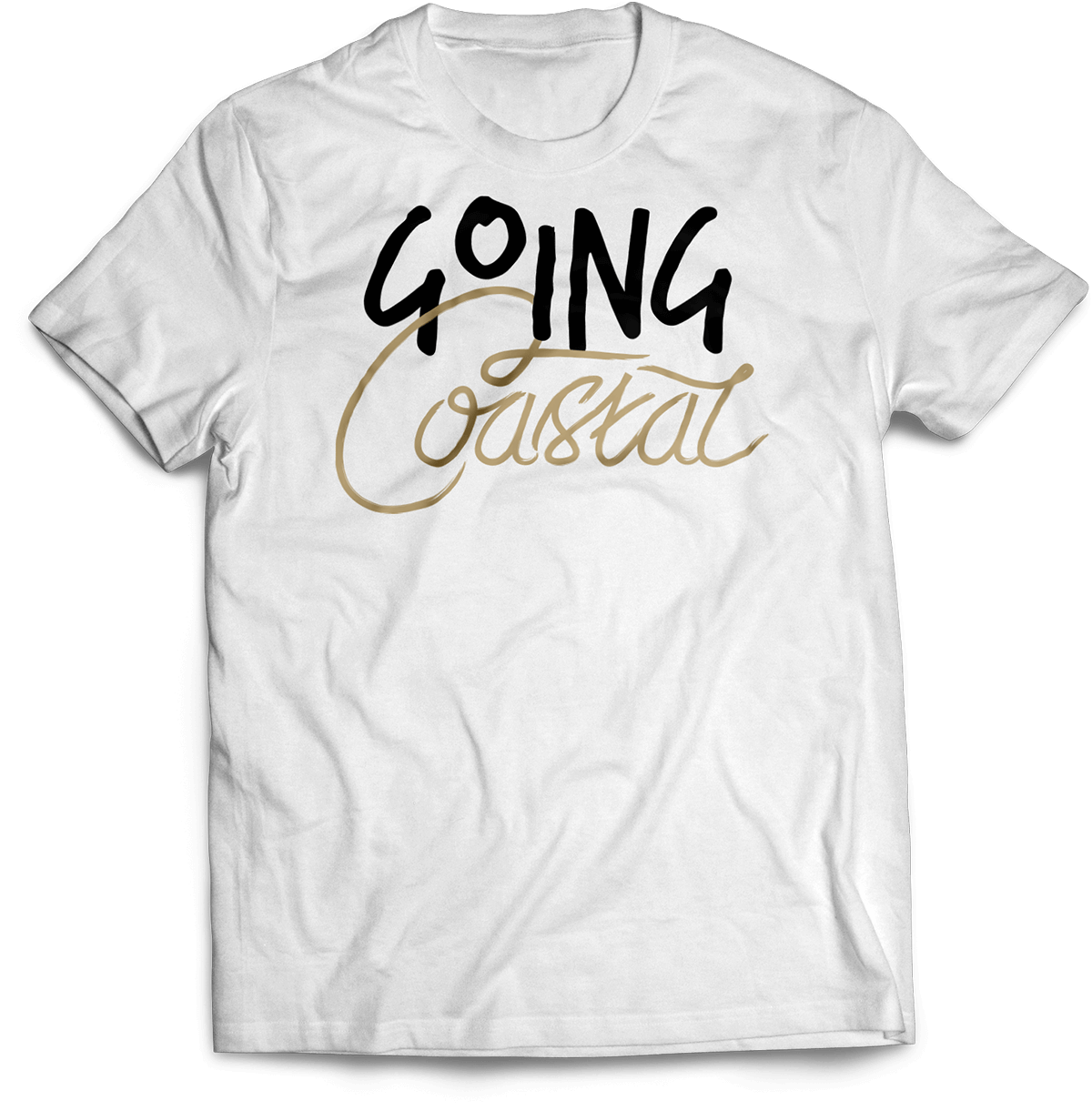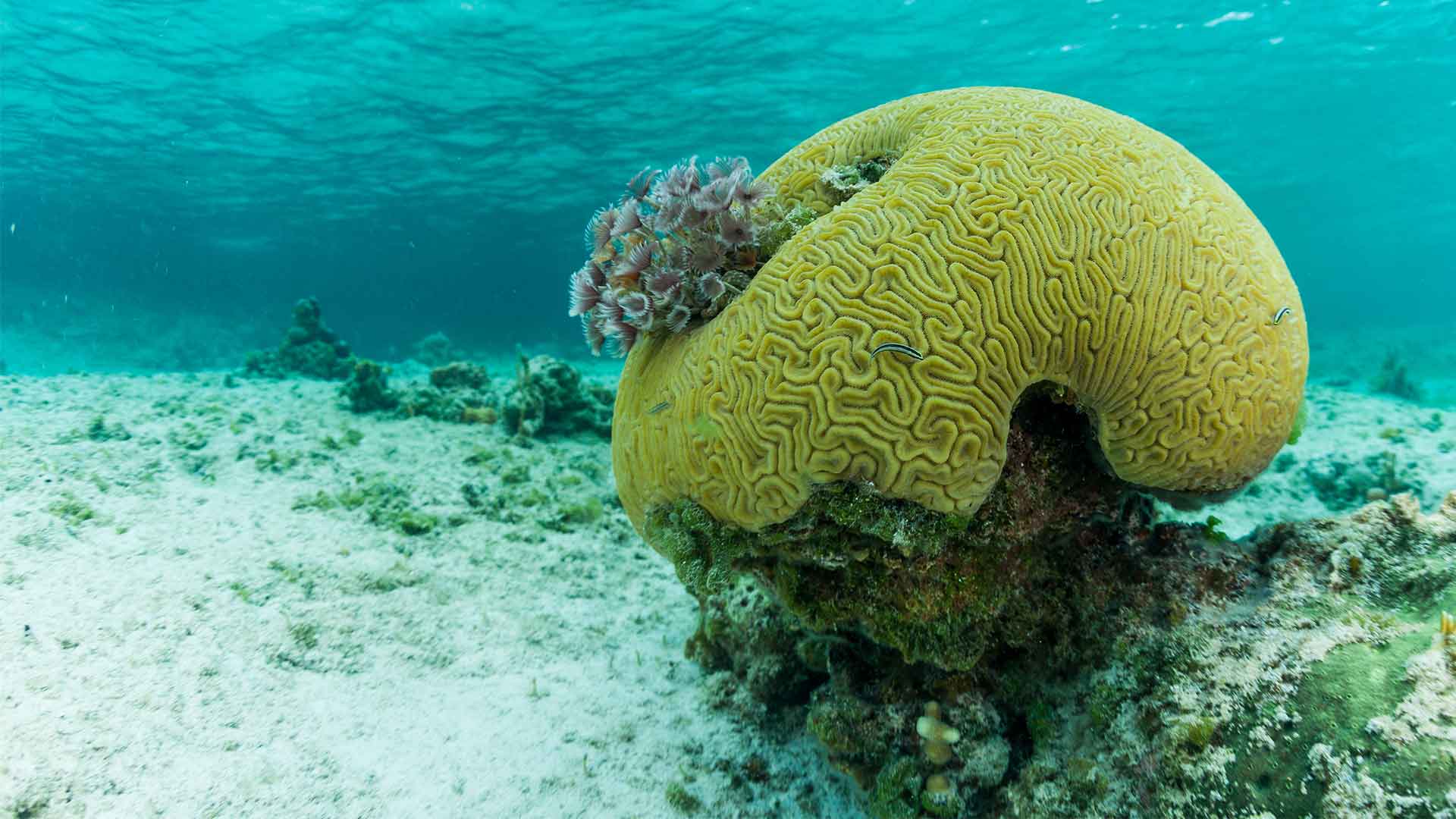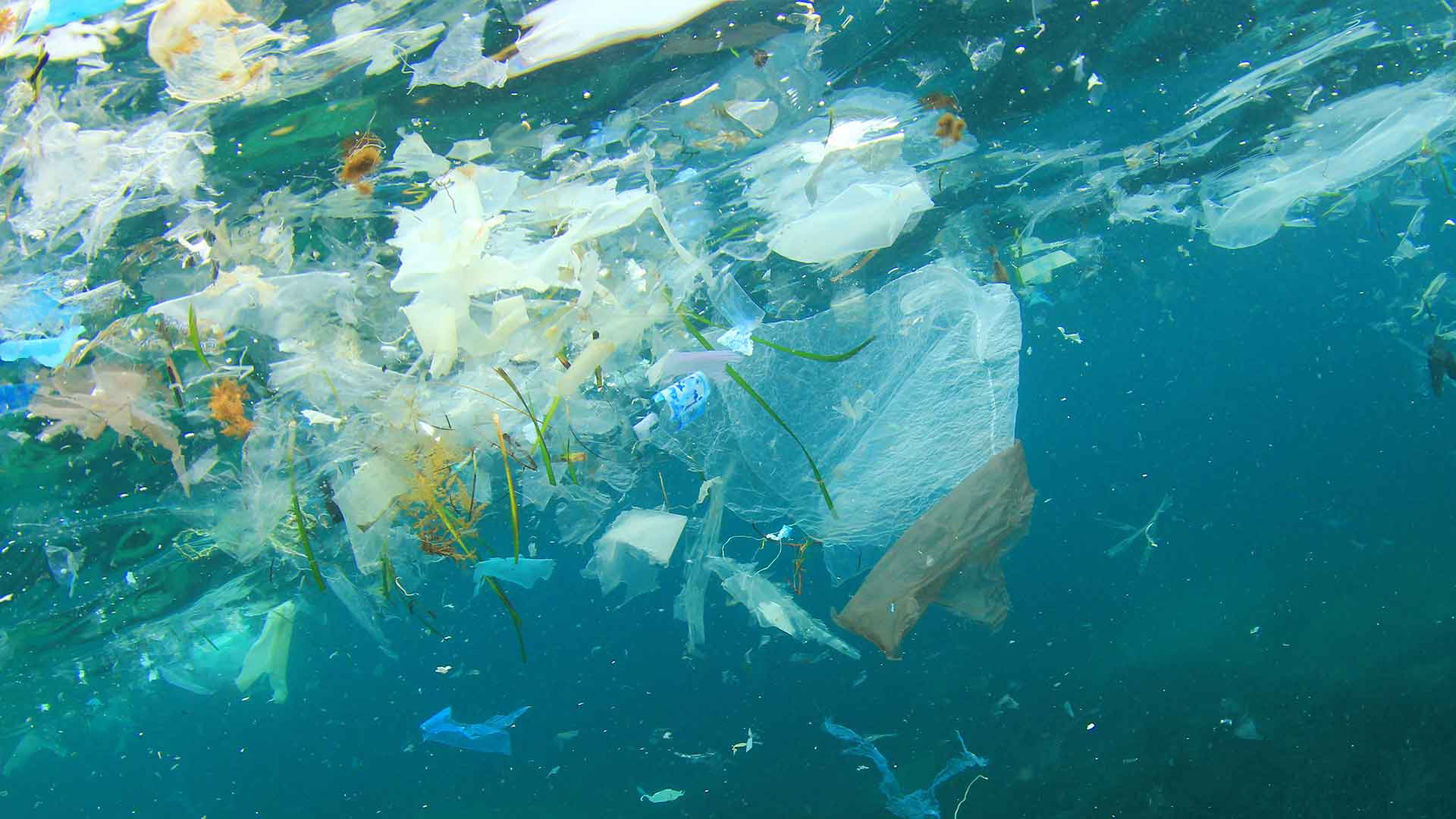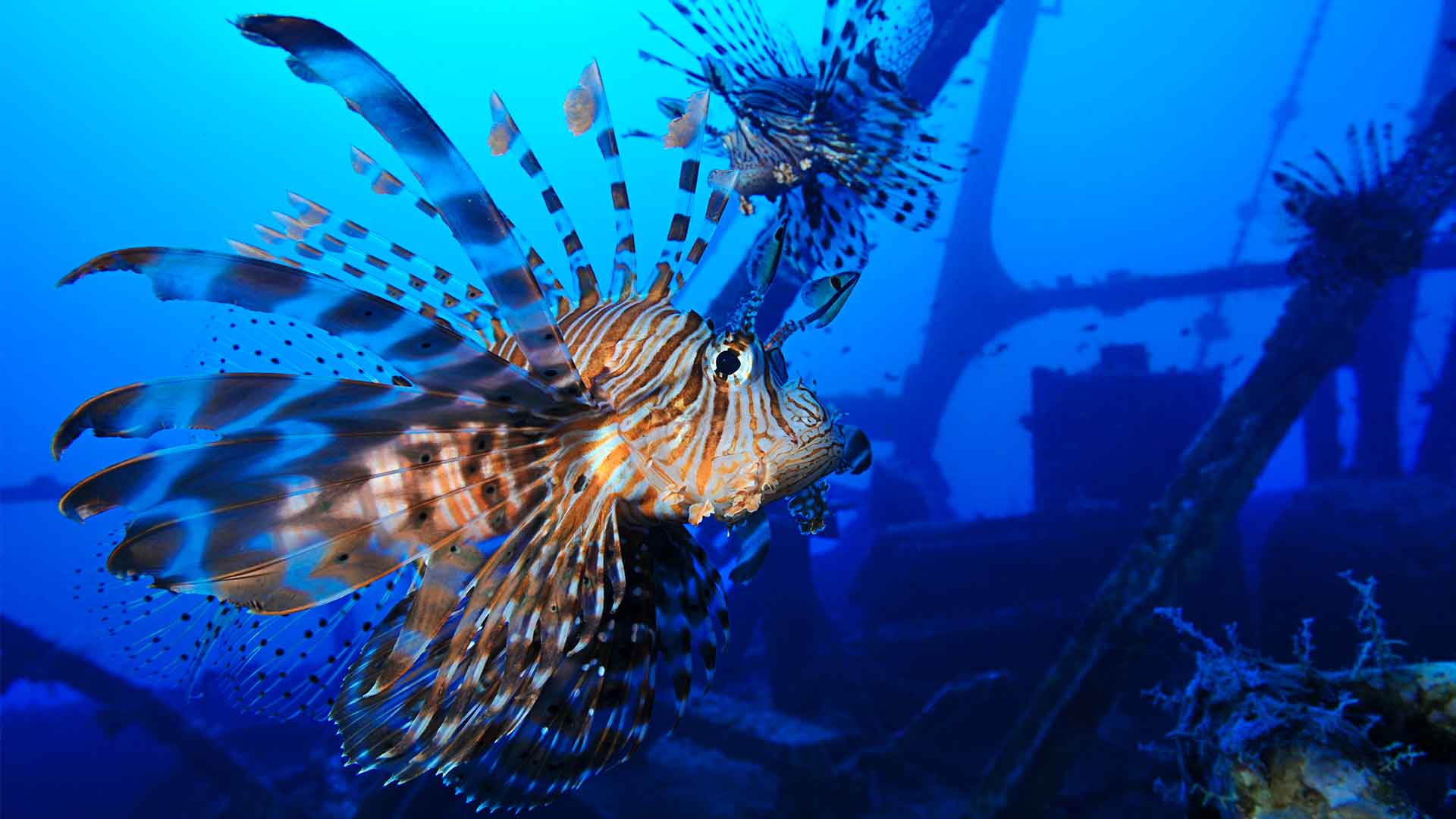
Invasive species in the Atlantic & Mediterranean – World Oceans Day
Non-native to Atlantic and Mediterranean waters, the beautiful yet menacing lionfish are an invasive species creating a large-scale threat to the balance of ocean ecosystems and adding to the many environmental problems currently facing the world’s seas.
This week, we are running a series of articles about preserving our coasts and protecting our oceans, and looking at how the effects of plastics, invasive species and damage to our precious coral reefs are affecting our oceans. Today, for #WorldOceansDay we want to shed light on the impact of invasive species, specifically lionfish in the Atlantic and Mediterranean oceans. Help us raise awareness and learn how you can help.
The issue
The world’s oceans are home to a fragile and beautiful balance of diverse marine life, which can be easily unbalanced by aggressive and foreign species. One such species causing a ruckus is the carnivorous lionfish. With no predators, a fast reproduction rate and a gigantic appetite these troublemakers were once only native to the Indo-Pacific. But in recent years lionfish have become an invasive species, increasingly sighted throughout the warm coasts of the Atlantic Ocean, where it was thought the problem had been curbed, yet recent sightings have found them spreading as far as the Mediterranean. This invasion of a non-native species has created an incredibly sudden imbalance that, if we leave unculled, will upset the marine diversity in our oceans for years to come.
Once a beautiful aquarium feature, the distinctive striped bodies of the lionfish, with its venomous spikes, were highly desirable to the marine trade. Unwanted lionfish from domestic aquariums are thought to have been dumped in the ocean, sparking the invasion. Since then, dense populations of lionfish are increasingly being found, and with just one small lionfish having the capacity to reduce the number of juvenile native fish on any given reef by around 79% in just five weeks, they’re upsetting the balance of marine species in record time.
Worryingly, in only four years since they were first spotted in the Atlantic, lionfish have invaded the seas around places like Cyprus, where rising sea temperatures throughout the Mediterranean are attracting large colonies. Demetris Kletou, of the Marine & Environmental Research Lab in Limassol, Cyprus, has been following the sightings, collecting specimens and carrying out genetic work.
“Their numbers are definitely increasing, there is no one to dispute that.”
His team are putting together a project to combat this invasion of lionfish by employing a strong surveillance system, removal actions, awareness initiatives, market explorations, risk assessments and more. The success of the lionfish at invading new territories is due to a combination of an impressive resilience to predators, being able to travel up to three months or longer without eating (and only losing 10% of their body mass), as well as its frighteningly fast reproductive rate, with one single female laying up to two million eggs per year.
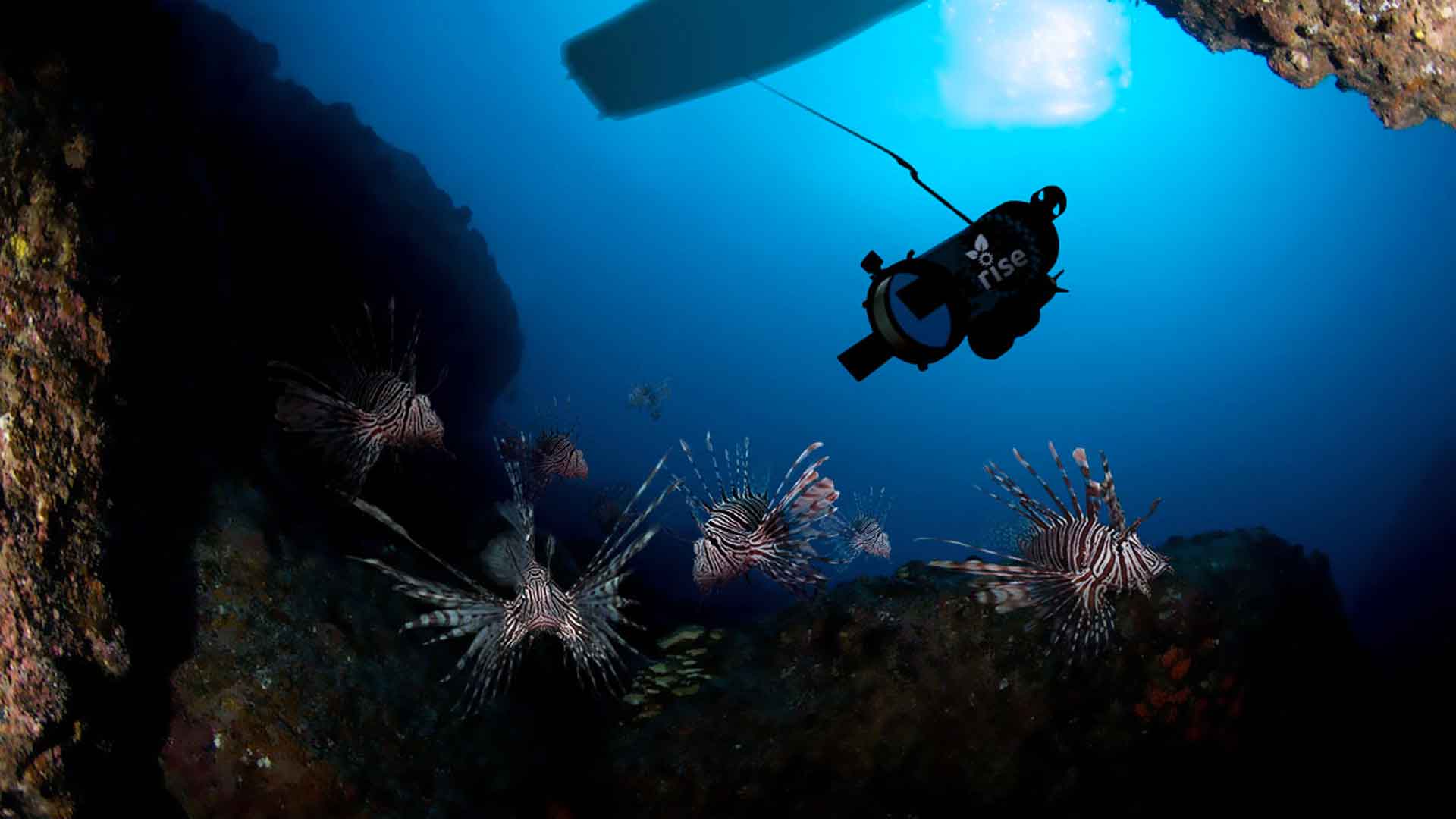
Rise robot tackling the lionfish epidemic
One unique way to combat the spread of lionfish is being explored by chefs. With the #EatLionfish campaign, chefs are looking at turning the species into a tasty delicacy. Chefs like Chris Kenny, at Richard Branson’s Necker Island, are using their celebrity to take action against the invasion of lionfish and are encouraging others to do the same. With no natural predators in Atlantic waters, competitions like the Celebrity Chef 11th Hour Racing Lionfish Throwdown helps to raise awareness of the sustainable dishes made from lionfish that others can recreate. During the event, RISE, a non-profit focused on developing robots to solve environmental problems, launched its undersea robot, designed to slow the destruction caused by lionfish. Yet another creative solution to a drastic problem.
How you can help
Like sushi? You’re going to love lionfish (once you’ve removed their venomous spikes) because they are really quite tasty! There are competitive lionfish cook-offs between local fishermen and chefs as well as tourist and diving expeditions to spur engagement and awareness in many of the affected areas. There are also rallies and diving hunts to help with the removal of them from our oceans. Getting involved in any one of these can help, even one bite at a time!
Unfortunately, many scientists agree that the complete eradication of lionfish in non-native waters is probably impossible. Because of their robust nature, lionfish can live for more than 20 years and grow to over 100lbs, but their advancing invasion can be mitigated and their numbers reduced. It is important to help raise awareness about their threat to our oceans and any effort will be worthwhile in combating their spread, from engaging in hunting rallies, to dining on invasive species dishes and even robots. This #WorldOceansDay, let’s spread the love and help stop the spread of this invasive species.

